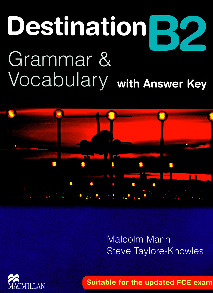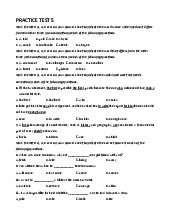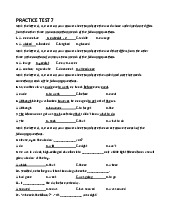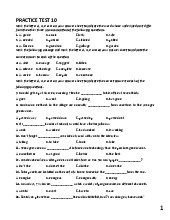




Preview text:
lOMoAR cPSD| 45438797
PRACTICE-UNIT 4-GRADE 10
I. Choose the option A, B, C, or D to indicate the word that has stress pattern different from the others. 1. A. award B. festive C. comment D. talented 2. A. present B. award C. expect D. series 3. A. festival B. deliver C. imagine D. performance 4. A. perform B. running C. amusing D. release
II. Complete the sentences using the correct form of the words in brackets.
1. Several (talent) __________________ trainees take this job training course.
2. The students are eager to enjoy his classmate debut (form) __________________ this Sunday.
3. She dreams of becoming one of famous pop (sing) __________________ in the country.
4. A talented young (music) ___________________ will perform at this flower festival.
5. The lives and careers of several famous (art) __________________ is a source of inspiration for teenagers.
6. My friend and I were so (excite) __________________ to go to the Youth Music Festival.
7. She dreams of making an audio (record) __________________ for her first song.
8. The (win) __________________ and the (run)__________________ of the show will be chosen by the audience’s text messages or voting online.
III. Choose the option A, B, C, or D to indicate the word that best fits each question.
1. Do you know the singer performing on the ______________. A. show B. TV C. air D. stage
2. Mai agreed ______________ my old laptop. A. buy B. to buy C. buying D. to be bought
3. Most of the bands that appear on the show just mime to _____________ of their songs. A. recording B. record C. to record D. recorded
4. That _______________ experience makes them unforgettable and talked about it all the time. A. excite B. excited C. exciting D. excitedly
5. The poor boys couldn’t afford to _____________ their favorite song recording. A. make B. perform C. win D. do
6. We managed ______________ their first album on social media. A. find B. to find C. found D. founded
7. His parents didn't ______________ him go to music school. A. let B. make C. get D. appreciate
8. I heard him ______________ the window last night. A. to open B. open C. opening D. be opened
9. Several _____________ flocked to the competition in the hope of showing their musical talents. A. music B. musical C. musician D. musicians
10. Marian was heard _____________ hard for her next week’s presentation. A. practise B. to practise C. practising D. practised
11. His performance is going to be ______________ this summer. A. on the air B. in the air C. up in the air D. down in the air
12. Our students volunteers at mountainous areas enthusiastically _____________. A. for all time B. of all time C. in no time D. no time to lose
13. I'd love _______________ Paris one day. A. to visit B. visit C. visiting D. being visited
14. He _____________ to be a talented guitarist of all time. A. is seeming B. seems C. seemed D. is going
15. Dad promised ______________ my piano repaired on Sunday. A. have / B. to have C. having D. will have
16. His teacher _______________ him apologize for his bad behavior. A. forced B. let C. made D. have
17. The drought relief will be delivered _________________. A. for all time B. of all time C. in no time D. no time to lose
18. I saw her ______________ the street, holding a little boy’s hand. A. cross B. to cross C. crossed D. to have crossed
19. The Lan Song Xanh programme first went __________ 28 years ago. A. on the air B. in the air C. up in the air D. by the air
20. Mr. Tim Morray ___________ her whole life to the disadvantaged, which inspires all of us. lOMoAR cPSD| 45438797 A. is devoting B. devotes C. devote D. was devoting
21. On behalf of our charity, I’d grateful to you all for your __________ support. A. unfailing B. unwanted C. indifferent D. infamous
22. He must be an ___________ volunteer. He can deal with everything smoothly at the local charity. A. experience B. experiencing C. experienced D. inexperienced
23. The new class of __________ for volunteering work abroad starts next week. A. train B. training C. trainers D. trainees
IV. Choose A, B, C, or D to indicate the word that has the closest meaning to the underlined part.
1. All of us are looking forward to his debut performance on the air, so we are going to gather at my home tonight. A. released B. broadcasted C. showed up D. brought out
2. After a long week in hunger, their donations were music to the villagers’ ears.
A. made the villagers delighted B. made the villagers love music C. delivered the amusing songs D.
delighted the villagers by music
3. He began to change his tuned after realizing how much benefit he could make. A. change his mind B. raise his voice C. shout aloud D. speak loudly
V. Complete the sentences with the correct form of words in brackets.
1. You should take a rest. You look really (tire) _____________.
2. She’s feeling (depress) _______, so I’m suggesting that she should go home, drink warm water, and go to bed early with (relax) _____________music.
3. Mary was (fascinate) _____________ by Mandarin at the first time he learned languages. she decided to practise more
andnow she can speak it fluently.
4. He looked very (confuse) _____________ when we told him we had to change the flight because of him.
5. That film was so (depress) _____________! There was no happy ending for any of the characters.
6. It’s so (frustrate) __________! No matter how much I concentrated on his speech I couldn’t understand what he meant.
7. The journey was (bore) _____________ ! Twenty hours by train made us (exhaust) _____________.
8. Don’t show my baby photos to others, Mum! It’s so (embarrass) _____________!
VI. Choose the answer - A, B, C, or D -that is nearest in meaning to the sentence printed before.
1. She told us to help ourselves to the apples in the basket.
A. She offered us some apples in return for our help.
B. She let us have as many apples as we wanted.
C. She wanted our help to pick the apples and put them in a basket.
D. She wanted us to do all the work ourselves.
2. That library book must be returned within one week.
A. The book was brought back last week.
B. The book should have been returned a week ago.
C. The book hl1S already been borrowed for a week.
D. The book can't be kept longer than a week.
3. As soon as he waved his hand, she turned away.
A. He saw her turn away and he waved his hand.
B. He waved his hand at the same time as she did.
C. He waved his hand and at once she turned away.
D. She turned away because he waved his hand too soon.
4. 'You broke my glasses,' said the woman to me.
A. The woman insisted on breaking her glasses.
B. The woman advised me to break her glasses.
C. The woman told me to break her glasses.
D. The woman blamed me for having broken her glasses.
5. The family find it difficult to manage on the money they have.
A. It's difficult for the family to get by on the money they have.
B. It is difficult for them to earn money.
C. The family could manage on the money they have.
D. The family managed to earn enough money to live.
VII. Choose one option that best fits each of the following sentences.
1. ________ received law degrees as today.
A. Never so many women have B. Never have so many women C. The women have never D. Women who have ever
2. ________ he would have come to class.
A. If Mike is able to finish his homework
B. Would Mike be able to finish his homework C. If Mike could finish his homework
D. Had Mike been able to finish his homework
3. The students liked that professor's course because ________.
A. there was few or no homework. B. not a lot of homework.
C. there was little or no homework
D. Of there wasn't a great amount of homework.
4. ________ a painter, but he also took an interest in the flight of birds.
A. Not only Rembrandt was B. Although Rembrandt was
C. Despite Rembrandt being
D. Not only was Rembrandt
5. ________ that new information to anyone else but the sergeant. lOMoAR cPSD| 45438797
A. They asked him not to give
B. They didn't order him to give
C. They asked him to give
D. They ordered him to give
VIII. Report these sentences. Choose the most appropriate reporting verb in parentheses. Make it active or passive as appropriate.
1. The teacher said to Jim, 'Would you give your book to Mary, please?' (ask/ tell/ order)
The teacher ..................................................................................
2. The sign said, 'No parking in this area. Violators will be towed away.' (invite/ warn/ force)
Drivers..................................................................................
3. The fire chief said, 'Everyone must leave the building immediately.' (order/ remind/ allow)
Everyone ..................................................................................
4. Before Bobby went to bed, his father said, 'Don't forget to brush your teeth.' (invite/ allow/ remind)
Before Bobby went to bed, his father ......................................................
5. The teacher said to the students, 'You will have exactly one hour to complete the exam.' (order/ expect/ warn)
The students ..................................................................................
6. My garage mechanic said, 'You should get a tune-up every 5,000 miles.' (ask/ order/ advise)
My garage mechanic ..............................................................................
7. The factory manager said to the employees, 'Do not come late. If you do, you will lost your jobs.' (ask/ warn/ encourage)
The employees..................................................................................
8. The sign on the side door says, 'Do not enter,' so we have to use a different door. (ask/ permit/ force)
Nobody ..................................................................................
9. The judge said to the defendant, 'You must not shout in the courtroom again.' (ask/ order/ encourage)
The defendant ..................................................................................
10.My parents often said to me, 'Good for you! It's good to be independent!' (remind/ require/ encourage)
My parents ..................................................................................
IX. Use the given words and make some changes or addition if necessary to build meaningful sentences.
1. Jane/ not do/ cook/ she/ study/ her exams/ moment.
_______________________________________________________________________________________________
2. A homemaker/ person / not go out/ work/ stay/ home/look/ family.
_______________________________________________________________________________________________
3. Why/ not many parents/ make/ their kids/ do/ housework?
_______________________________________________________________________________________________
4. There/ some reasons/ children/ do housework.
_______________________________________________________________________________________________
5. Your great ideas/ really/ helpful/useful/ my project, Susan.
_______________________________________________________________________________________________
6. She/ proud/ she/ devote/ all/ spare time/ volunteering work.
_______________________________________________________________________________________________
7. They/ volunteer/ take care/ children/ orphan/ COVID-19 epidemic.
_______________________________________________________________________________________________
X. Rewrite the following sentences in a different way that they have closest meaning to the originals. Beginning with the given words. 1. She rarely smiles at me.
→ Rarely ……………………………………………………………………………………………………… 2.
I hadn’t known her until he told me.
→ Not . ……………………………………………………………………………………………………….. 3.
You will hardly finish your work before it is dark.
→ Hardly . …………………………………………………………………………………………………… 4.
You can buy this book only in this shop.
→ Only . ……………………………………………………………………………………………………… 5.
My teacher is no longer teaching in this school.
→ No . ………………………………………………………………………………………………………… 6.
She has never seen such a beautiful sight.
→ Never . …………………………………………………………………………………………………… lOMoAR cPSD| 45438797 READING
Read a following passage and mark the letter A, B, C or D on your answer sheet to indicate the correct answer to each of
the questions from 1 to 11. MUSICAL TALENT
Among all the abilities with which an individual may be endowed, musical talent appears earliest in life. Very young
children can exhibit musical precocity for different reasons. Some develop exceptional skill as a result of a well - designed
instructional regime, such as the Suzuki method for the violin. Some have a good fortune to be born into musical family in a
household filled with music. In a number of interesting cases, musical talent is part of an otherwise disabling condition such
as autism or mental retardation. A musically gifted child has an inborn talent, however, the extent to which the talent is
expressed publicly will depend upon the environment in which the child lives.
Musically gifted children master at an early age the principal elements of music, including pitch and rhythm. Pitch - or
melody - is more central cultures, for example, in Eastern societies that make use of tiny quarter - tone interval. Rhythm,
sounds produced at certain auditory frequencies and grouped according to a prescribed system, is emphasized in sub Saharan
Africa, where the rhythmic ratios can be very complex
All children have some aptitude for making music. During infancy, normal children sing as well as babble, and they can
produce individual sounds and sounds pattern. Infants as young as two months can match their mother's songs in pitch,
loudness, and melodic shape, and infants at four months can match rhythmic structure as well. Infants are especially
predisposed to acquire these core aspects of music, and they can also engage in sound play that clearly exhibits creativity.
Individual differences begin to merge in young children as they learn to sing. Some children can match segments of a song by
the age of two or three. Many others can only approximate pitch at this age and may still have difficulty in producing accurate
melodies by the age of five or six. However, by the time they reach school age, most children in any culture have a schema of
what a song should be like ang can produce a reasonably accurate imitation of the songs commonly heard in their environment.
The early appearance of superior musical ability in some children providence that musical talent may be separate and
unique form of intelligence. There are numerous tales of young artist who have a remarkable "ear" or extraordinary memory
for music and a natural understanding of musical structure. In many of these cases, the child is average in every other way but
displays an exceptional ability in music. Even the most gifted child, however, takes about ten years to achieve the levels of
performance or composition that would constitute mastery of the musical sphere.
Every generation in music history has its famous prodigies - individuals with exceptional musical powers that emerge at
a young age. In the eighteenth century, Wolfgang Amadeus Mozart began composing and performing at the age of six. As a
child, Mozart could play piano like an adult. He had perfect pitch, and at the age of nine he was also a master of the art of
modulation - transition from one key to another - which became one of the hallmarks of his style. By the age of eleven, he had
composed three symphonies and 30 other major works. Mozart's well - developed talent was preserved into adulthood.
Unusual musical ability is a regular characteristic of certain anomalies such as autism. In one case, an autistic girl was able to
"Happy Birthday" in the style of various composer, including Mozart, Beethoven, Verdi, and Schubert. When the girl was
three, her mother called her by playing incomplete melodies, which the child would complete with the appropriate tone in the
proper octave. For the autistic child, music may be the primary mode of communication, and the child may cling to music
because it represents as a haven as a world that is largely confusing and frightening.
1. The word "precocity” in paragraph I is closest in meaning to.......... A. strong interest B. good luck C. advance skill D. personal style
2. Which sentence blew best expresses the essential information in the highlight sentence in paragraph I?
A. Children may be born with superior musical ability, but their environment will determine how this ability is developed.
B. Every child is naturally gifted, and it is responsibility of the public schools to recognize and develop these talents.
C. Children with exceptional musical talent will look for the best way to express themselves through music - making.
D. Some musically talented children live in an environment surrounded by music, while others have little exposure to music.
3. The author makes the point that musical elements such as pitch and rhythm...........
A. distinguish music from other art forms
B. vary in emphasis in different cultures
C. make music difficult to learn
D. express different human emotions
4. The word “predisposed" in paragraph 3 is closest in meaning to............ A. inclined B. gifted C. pushed D. amused
5. According the passage, when does musical talent usually begin to appear?
A. When infants start to babble and produce sound patterns
B. Between the ages of two and four months
C. When children learn to sing at two or three years old D. Between ten years old and adolescence 6. According
the passage, which of the following suggests that musical talent in the separate form of intelligence?
A. Exceptional musical ability in an otherwise average child
B. Recognition of the emotional power of music
C. The ability of all babies to acquire core elements of music
D. Differences between learning music learning language
7. Why does the author discuss Mozart in paragraph 6?
A. To compare past and present views of musical talent B. To give an example of a well - known musical prodigy C. To
list musical accomplishments of the 8th century D. To describe the development of individual musical skill 8. In music, the
change from one key to another is known as............. A. Rhythm B. Prodigy C. perfect pitch D. modulation lOMoAR cPSD| 45438797
9. All of the following are given as example of exceptional musical talent EXCEPT..............
A. a remarkable "ear" or perfect memory for music
B. ability to compose major works at a young age C. appreciation
for a wide variety of musical styles
D. playing a single song in the style of various composers 10. The word "haven" in
paragraph 7 is closest meaning to........... A. Beautiful art B. Safe place C. personal goal D. simple problem
11. Which of the following can be inferred from the passage about exceptional musical ability? A.
It occurs more frequently in some cultures than in others.
B. It is evidence of a superior lever of intelligence in other areas.
C. It has been documented and studied but is little understood.
D. It is the result pf natural talent and a supportive environment.




